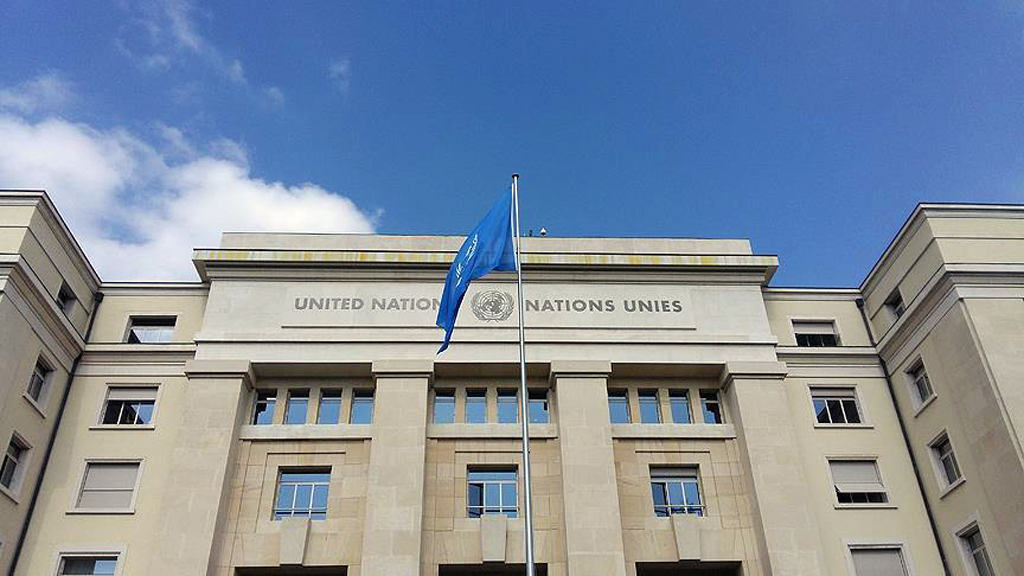
Turkey's urgent UN agenda
There are three items on President Erdoğan's agenda: Turkey's request for support regarding the fate of Syrian refugees, Erdoğan's commitment to setting up a safe zone in northeastern Syria and his emphasis on injustices in the current world order. I believe that the Turkish president will touch upon those issues in his address to the U.N. General Assembly as well as bilateral meetings with U.S. President Donald Trump and Germany's Chancellor Angela Merkel. Erdoğan's recent remarks about nuclear weapons relate to the search for a new world order, as encapsulated by the maxim: "The world is bigger than five." After all, revealing one's intention to become a nuclear power makes little sense if one indeed means it.
Share
President Recep Tayyip Erdoğan flew to New York on Saturday for the United Nations General Assembly's opening. There are three items on his agenda: Turkey's request for support regarding the fate of Syrian refugees, Erdoğan's commitment to setting up a safe zone in northeastern Syria and his emphasis on injustices in the current world order. I believe that the Turkish president will touch upon those issues in his address to the U.N. General Assembly as well as bilateral meetings with U.S. President Donald Trump and Germany's Chancellor Angela Merkel. Erdoğan's recent remarks about nuclear weapons relate to the search for a new world order, as encapsulated by the maxim: "The world is bigger than five." After all, revealing one's intention to become a nuclear power makes little sense if one indeed means it.
The Turkish leader's words about refugees and the safe zone, in turn, are directly related to developments in the east and west of the Euphrates river. Those two closely interrelated issues should be of great interest to Europe. Western leaders and societies must finally heed Erdoğan's call.
European media outlets have been full of stories about a potential wave of immigrants since President Erdoğan warned that the situation in Idlib must cause concern in Europe, just as it causes concern in Turkey. European leaders, who acted like the Syrian civil war was taking place in the Bahamas for years, finally came to appreciate the severity of the situation. International meetings like the Ankara summit can be a stopgap against violent clashes in Idlib and the influx of refugees it would entail. Today, Erdoğan's defamation in the European media means very little. The situation is indeed quite dire. For the sake of European democracies, the old continent's leaders must play a bigger role in Syria – on refugees and the safe zone alike.
The European Union cannot keep some 4 million refugees in Turkey simply by throwing 6 billion euros ($6.6 billion) at the problem. In August alone, 9,300 illegal immigrants arrived at the Greek islands. Hundreds of thousands of others are waiting in Idlib, looking for ways to reach Europe. Yet millions more could potentially come from Afghanistan, Pakistan and Iran.
The solution is not to shut the door on refugees but to ensure that they can continue to live in their native countries. Turkey's proposal to resettle refugees in safe zones within Syria's borders is the best plan on the table. Merkel's recent phone call to Erdoğan in an attempt to develop alternatives shows that Berlin has already heard Ankara's message.
Here's what the European Union needs to do right away:
The resettlement agreement must be updated and additional funds must be made available.
Europe must support efforts to set up safe zones in Syria and make financial contributions to that end. It must also pressure the United States into following suit.
European support for the PKK terrorist group and its Syrian offshoot, the People's Protection Units (YPG), must end immediately. European governments must raise awareness about the group's ethnic cleansing efforts on the ground.
Fresh steps are needed in Turkey-EU relations. Europe must grant visa-free travel to Turkish citizens and renegotiate the customs union agreement.
The European Union must cooperate with Turkey on drilling activities in the Eastern Mediterranean.
I am aware that my proposals amount to a comprehensive framework for cooperation between Turkey and the European Union. I also happen to know that politicians tend to be insensitive towards humanitarian issues and enthusiastic when it comes to interests. Therefore, Europe must grasp that the question of refugees is not just a problem that it can ignore as it pleases. European leaders must understand that working with Turkey is key to Europe's security and where the old continent will find itself within new balances of power. To accomplish those goals, Europeans need to launch a new foreign policy initiative and strive for solutions to conflicts in Syria, Libya and elsewhere. Listening to Erdoğan's remarks could be a good place to start. Let us hope that bilateral meetings on the General Assembly's margins can lay the groundwork for closer cooperation.
[Daily Sabah, 24 September 2019]
Tags »
Related Articles








